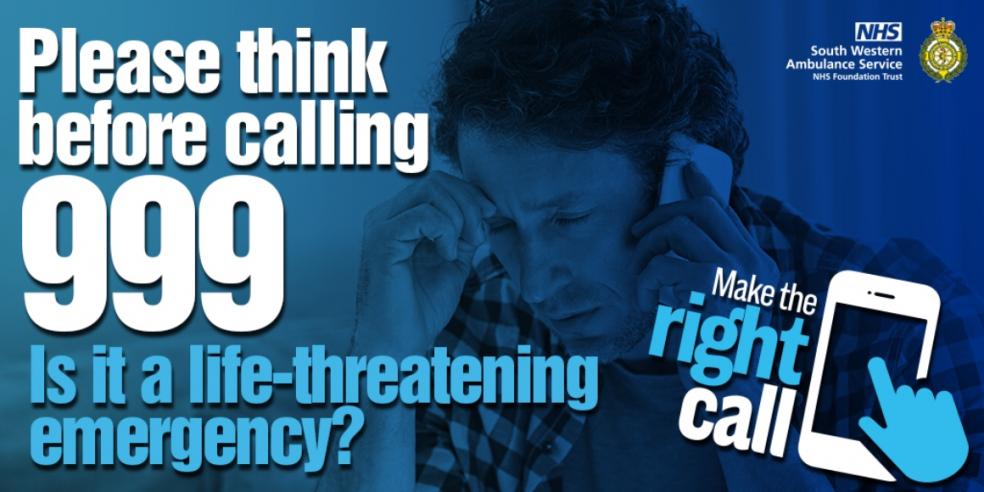
‘Stay safe this New Year’ says ambulance service
South Western Ambulance Service NHS Foundation Trust (SWASFT) is asking people to welcome the start of 2021 safely, and not make unnecessary 999 calls.
The NHS is experiencing high demand for its services, due to the ongoing coronavirus (Covid-19) pandemic alongside normal winter pressures.
SWASFT dealt with around 2,600 incidents a day between 19 and 28 December, and is expecting a busy New Year.
It is asking people only to call 999 in a life-threatening emergency, and to contact NHS 111 for less serious medical problems.
Parts of the South West have escalated to the toughest Tier 4 of coronavirus restrictions, and the remaining areas are in Tier 3 except the Isles of Scilly.
A SWASFT spokesperson said: “We encourage everyone to stay safe, abide by the tier restrictions for their local area, and only call 999 in a life-threatening emergency.
“It is vital that we don’t receive unnecessary calls, so that we and our NHS colleagues can prioritise those most in need.
“If you want to call for an ambulance, think - ‘is it a life-threatening emergency?’ Please make the right call.”
Misuse of the 999 service puts unnecessary additional pressures on limited ambulance resources, and can delay emergency care to those most in need.
More than half of 999 calls made to SWASFT are closed without the patient needing to be taken to hospital in an ambulance.
Around a third of patients are treated and discharged by ambulance crews at the scene, and others are given clinical advice over the phone.
999 call handler Ella said: “If you’re trying to decide whether or not to call 999, ask yourself - ‘would I drive this person to A&E immediately, or could they wait to be seen?
“Many people can be treated by NHS 111 or their local GP rather than needing to call 999.
“Please make the right call, and only dial 999 for life-threatening emergencies.”
People should call 999 for an ambulance in a medical emergency. This is when someone is seriously ill or injured and their life is at risk. For example: if someone has stopped breathing, has severe chest pain, is choking, may be having a stroke, has serious blood loss, or is unconscious.
People who have an urgent medical problem and aren’t sure what to do should contact NHS 111.
The main symptoms of coronavirus (COVID-19) are a high temperature, a new, continuous cough and a loss or change to your sense of smell or taste. Anyone with any of these symptoms should get a test as soon as possible, and stay at home until they get the result.













